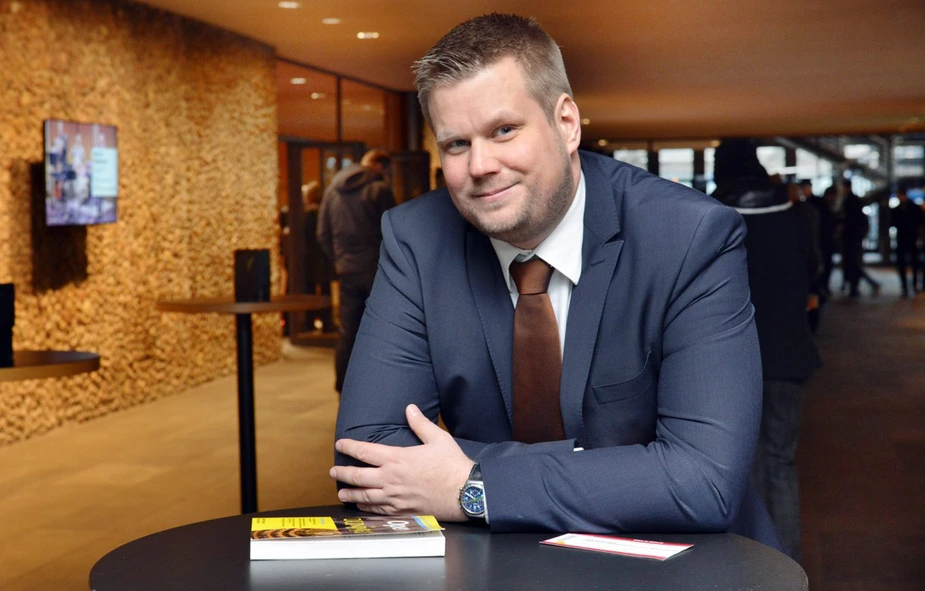In conversation with Tobias Kirschnick
Head of the Innovation and Business Incubation Centre (IGZ) in Adlershof since October
In this interview, Tobias Kirschnick lets us in on his plans for the centre’s reorganisation. Kirschnick, who is now in his late thirties, started off with a degree in business management at the Free University Berlin, dabbled as deputy manager of the Jugendaufbauwerk Nauen, a non-profit vocational organisation for young people, founded his own companies, and is now contributing his experience in founding, leading, and, alas, also liquidating businesses.
What qualifies you as head of IGZ?
My experiences, which I wish to contribute. I was a business founder myself and am aware of the typical problems of starting a business and know the start-up scene in Berlin. This has quickly made me gain trust with young founders. I don’t just see the great ideas, but I also draw attention to their marketability. Plus, I just extremely enjoy being in close contact with business founders who want to change the world just a tiny bit.
What happened to your companies?
Everything you do as a start-up founder takes longer than expected. Lastly, I lacked time and money. I started a company called DecidR Entscheidungsfindung UG together with my brother, who is in IT. Our idea: a way for indecisive people, unable to make a decision on even the most trivial things, for example, whether to eat pizza or pasta for lunch, to ask a community for help via an app we developed. DecidR was not only an app for the undecided, it also produced added value for companies. Before launching a product, companies could let the users decide whether to produce a new sneaker model in blue-yellow or red-black, say. Our target for the app was 20,000 users. We didn’t achieve that number and so we put an end to it.
Will there be a change of scene at IGZ now that you’re there?
The IGZ building was the first new building in the technology park, when it was founded. It could really do with rejuvenation after 25 years. This includes building rejuvenation, redesigning the entrance area, creating new laboratories, and making some structural changes. I for one have plans for an “open space”. A large space for future founders who haven’t developed a business plan and are still in the ideas stage to work, meet, mingle, share information, play, and develop ideas. Ideal for teams.
What kind of events does the IGZ offer?
It’s all about networking. Our plans include regular meetings such as a founder’s breakfast. In addition to such informal meetings for exchanging information, we will invite speakers on issues such as patent law, company funding, funding institutions, and sales, who will let start-ups in on some of their tricks. Together with Berlin Partner and our colleagues from the WISTA team, we also organise pitches for founders with industrial companies and venture capital-givers. I am also aiming at strengthening cooperation with the Humboldt-Innovation GmbH, the start-up agency of the Humboldt-Universität.
To you personally, what is the best invention in the world?
The printing press. Making knowledge sustainable and easily accessible, that’s a great thing…
…so do you read a lot?
Yes. But I don’t use an e-reader, I like to have a beautifully designed book in my hands. I only just re-read “The 13 1⁄2 Lives of Captain Bluebear” by Walter Moers. I also really like Robert van Gulik’s crime novel series about the Chinese judge Di. Those novels actually inspired me to study Sinology, which I did for one year before I switched to business management.
What did you want to be when you grew up?
A naturalist. I always found animals fascinating.
What happened to your fascination with animals?
I’m still interested in animals. In books. I’m afraid of dogs and my parent’s cat never liked me. My most impressive experience with animals was in the Ngorongoro Crater in Tanzania. It felt like paradise: zebras, buffalos, gnus, antilopes, lions, hyaenas, elephants…
Do you love travelling to far-away places?
Germany also has wonderful travel destinations. I don’t think I have to travel far to experience something. I visited Tanzania twice with youth projects of the protestant church which I’m a member of. We visited a twin congregation in Tanga, where we built an internet café, cleared land for building a school, but also got to visit the national parks.
What do you do in your spare time?
I have been practising judo since my childhood, then kung fu and wing tsun. I’m currently on hiatus, but I want to start doing it again. I also do it to balance my other hobby: cooking.
Is there something you simply cannot do?
I can neither sing, nor do I have a musical ear. Although I have been really getting into opera in the past years.
Interview by Sylvia Nitschke for Adlershof Journal
www.adlershof.de/en/real-estate-start-ups/start-up-services/overview/
